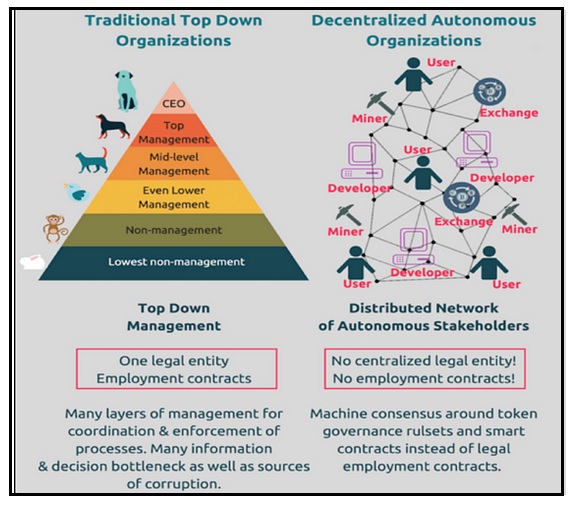7667766266
enquiry@shankarias.in
Decentralized Autonomous Organizations (DAOs) represent a groundbreaking innovation at the intersection of blockchain technology and governance.
Blockchain is a type of shared database that differs from a typical database in the way it stores information, it store data in blocks linked together via cryptography.

|
Applications of DAOs |
|
What are the challenges of DAOs?
Hard fork refers to a change in a network’s protocol that makes previously invalid blocks and transactions valid or vice-versa.